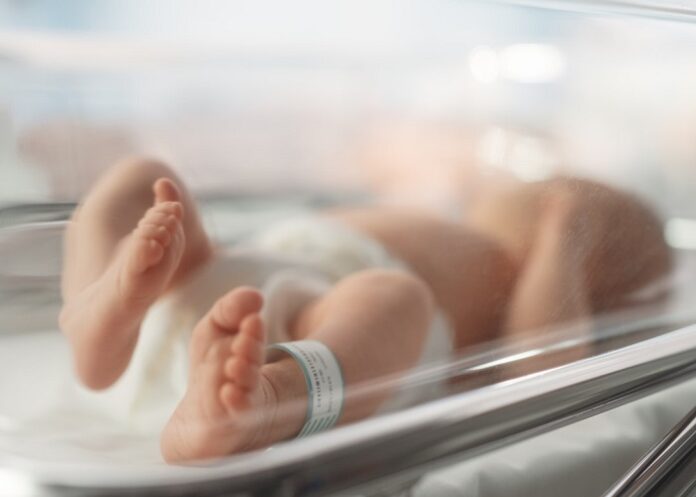After a 20-week intervention involving nearly 600 neonates, researchers found that the implementation of a prospective, multi-disciplinary antimicrobial stewardship (AMS) programme had significantly reduced antibiotic use, particularly in newborns with sepsis.
The national neonatal AMS (NeoAMS) intervention was initiated in 14 South African neonatal units (seven public, seven private) from February to July 2022.
CIDRAP reports that it involved multi-disciplinary teams of neonatologists, microbiologists, pharmacists, and nurses attending online training sessions, participating in weekly meetings, and conducting prospective audit and feedback of neonatal antibiotic prescriptions.
To evaluate the intervention, the researchers collected data on the number and type of interventions recommended by pharmacists, the acceptance rate of AMS recommendations, and changes in antibiotic length of therapy (LOT).
Overall 24% reduction in mean antibiotic LOT
The 565 neonates enrolled in the study, reported in the International Journal of Infectious Diseases, received antibiotic therapy for 753 infection episodes, and pharmacists evaluated 700 antibiotic prescriptions. The most frequent indication for empiric antibiotic therapy was to rule out early-onset sepsis (41.4%), followed by therapy for suspected hospital-acquired sepsis (26.1%).
Pharmacists recommended 437 NeoAMS interventions (0.6 per antibiotic prescription episode) during the 20-week study period, with antibiotic discontinuation (42%), therapeutic drug monitoring (17%), and dosing (15%) recommendations the most frequent.
Neonatal clinicians’ acceptance rates for AMS recommendations were high (77%). Overall, mean antibiotic LOT decreased 24%, from 9.1 to 6.9 days, with the greatest decline in LOT observed for culture-negative sepsis (8.2 to 5.9 days).
The study authors say the findings are significant because almost all previously published neonatal AMS intervention data were generated in high-income settings. They note that NeoAMS is the first multi-site, multi-disciplinary neonatal stewardship study conducted on the African continent.
“This study adds to the limited evidence base for neonatal AMS in Africa and demonstrates the positive impact of multi-disciplinary team-led AMS,” they wrote. “These findings confirm that successful AMS initiatives are possible in resource-limited neonatal settings.”
Study details
Prospective antimicrobial stewardship interventions by multidisciplinary teams to reduce neonatal antibiotic use in SA: the Neonatal Antimicrobial Stewardship (NeoAMS) study
Angela Dramowski, Pavel Prusakov, Dena van den Bergh, et al on behalf of the NeoAMS Study Team.
Published in International Journal of Infectious Diseases on 28 June 2024
Highlights
•First multi-site, multi-disciplinary neonatal stewardship study on the African continent.
•Multidisciplinary teams reduced antibiotic length of therapy in neonates by 24%.
•Pharmacist antibiotic recommendations had 77% neonatal clinician acceptance.
•The greatest decline in length of therapy was for culture negative sepsis.
•Collaboration led to successful neonatal stewardship in resource limited settings.
Abstract
Background
Hospitalised neonates are vulnerable to infection and have high rates of antibiotic utilisation.
Methods
Fourteen South African neonatal units (seven public, seven private sector) assembled multidisciplinary teams involving neonatologists, microbiologists, pharmacists, and nurses to implement prospective audit and feedback neonatal antimicrobial stewardship (NeoAMS) interventions. The teams attended seven online training sessions. Pharmacists conducted weekday antibiotic prescription reviews in the neonatal intensive care unit and/or neonatal wards providing feedback to the clinical teams. Anonymised demographic and NeoAMS interventions data were aggregated for descriptive purposes and statistical analysis.
Findings
During the 20-week NeoAMS intervention in 2022, 565 neonates were enrolled. Pharmacists evaluated seven hundred antibiotic prescription episodes; rule-out sepsis (180; 26%) and culture-negative sepsis (138; 20%) were the most frequent indications for antibiotic prescription. For infection episodes with an identified pathogen, only 51% (116/229) of empiric treatments provided adequate antimicrobial coverage. Pharmacists recommended 437 NeoAMS interventions (0·6 per antibiotic prescription episode), with antibiotic discontinuation (42%), therapeutic drug monitoring (17%), and dosing (15%) recommendations most frequent. Neonatal clinicians’ acceptance rates for AMS recommendations were high (338; 77%). Mean antibiotic length of therapy decreased by 24% from 9·1 to 6·9 days (0·1 day decrease per intervention week; p=0·001), with the greatest decline in length of therapy for culture-negative sepsis (8·2 days (95%CI 5·7-11·7) to 5·9 days (95% CI 4·6-7·5); p=0·032).
Interpretation
This neonatal AMS programme was successfully implemented in heterogenous and resource-limited settings. Pharmacist-recommended AMS interventions had high rates of clinician acceptance. The NeoAMS intervention significantly reduced neonatal antibiotic use, particularly for culture-negative sepsis.
See more from MedicalBrief archives:
SAMRC renews funding for neonatal sepsis research
New antibiotics vital to stem newborn deaths
WHO urges action to stem rising AMR as experts call for new neonatal drugs
Rising antibiotic-resistant infections prompt global study with SA hospitals

